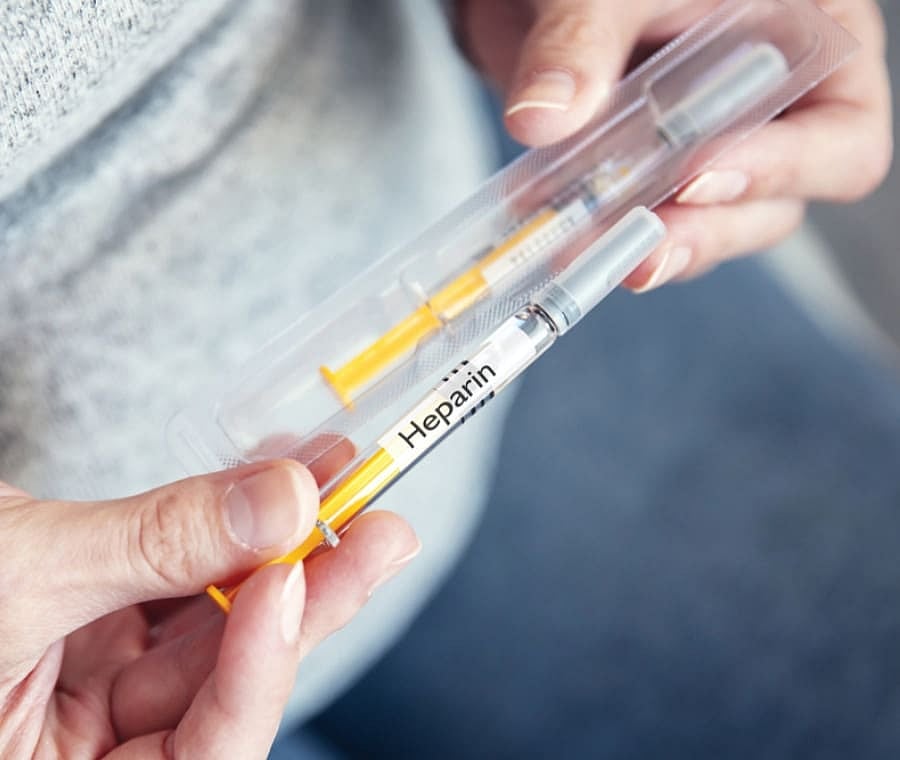London: Clotting problems and resulting complications are common in Covid-19 patients. Austrian researchers have shown that heparin -- a member of the anticoagulant group of drugs not only has a beneficial effect on survival of Covid patients, but also influences the duration of active infection with the SARS-CoV-2 coronavirus.
The study led by Medical University of Vienna showed that duration of infection is curtailed in patients treated with heparin -- the most commonly used anticoagulant.
"In patients who receive this drug, infection time is an average of four days shorter than in patients who are not treated with low-molecular-weight heparin. We were surprised to see that low-molecular-weight heparin may have a direct effect on coronavirus and its infectivity," said David Pereyra from the varsity's Department of General Surgery.
Experimental data show that heparin can inhibit the ability of SARS-CoV-2 to bind to cells, thereby preventing them from being infected, the team explained.
It also improved survival in Covid patients, who have an increased risk of thromboses and embolisms, such as strokes, pulmonary or myocardial infarctions, and even deep vein thromboses.
The use of drugs that inhibit blood clotting has been part of the treatment guidelines for Covid-19 since July 2020.
However, "the coagulopathy observed in Covid-19 patients is novel and differs in many respects from previously known coagulation problems," said Alice Assinger, from the Institute of Vascular Biology and Thrombosis Research at the University.
"Covid-19-associated coagulopathy displays characteristics that, although partially comparable with other coagulation diseases, cannot be fully explained by them," she said.
The team therefore started to look for an explanation for this sub-condition of Covid-19.
The results, published in the journal Cardiovascular Research, showed that Covid-19-associated coagulopathy occurs almost exclusively in patients requiring intensive care or in patients who die as a result of Covid-19.
Although anticoagulant drugs improve the survival of Covid-19 patients, they show no effect on immunological processes related to blood coagulation (immunothrombosis).
The analyses showed, however, that the period of active SARS-CoV-2 infection is curtailed in patients treated with low-molecular-weight heparin.










